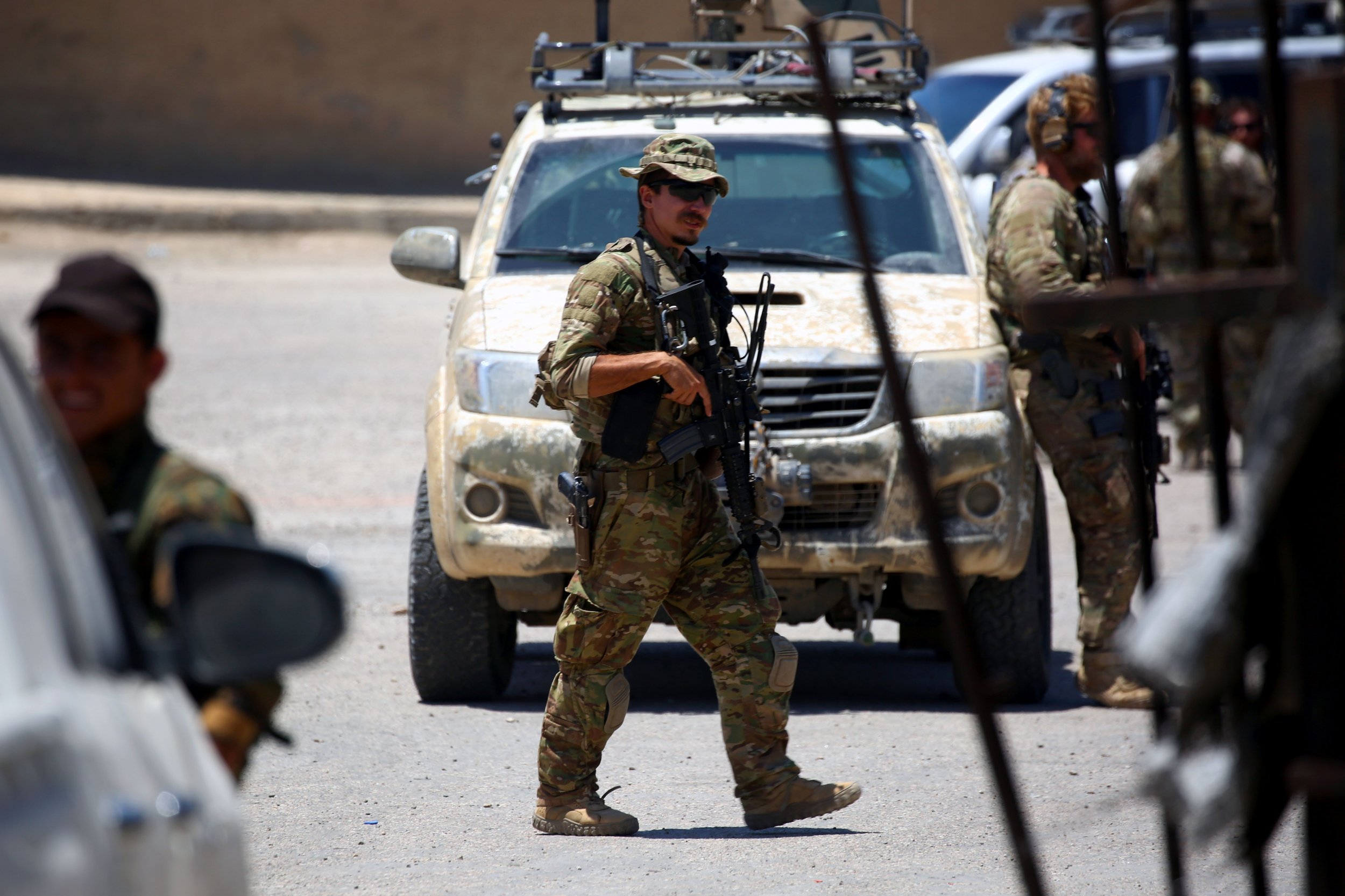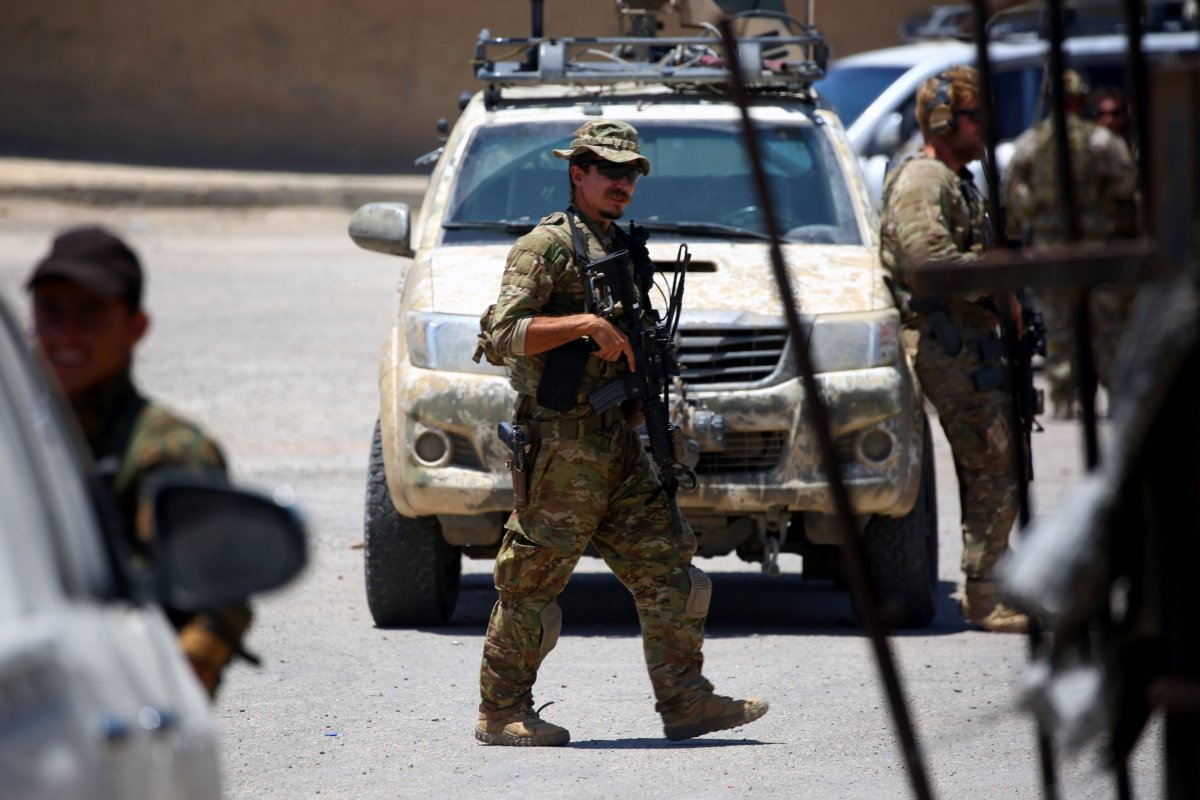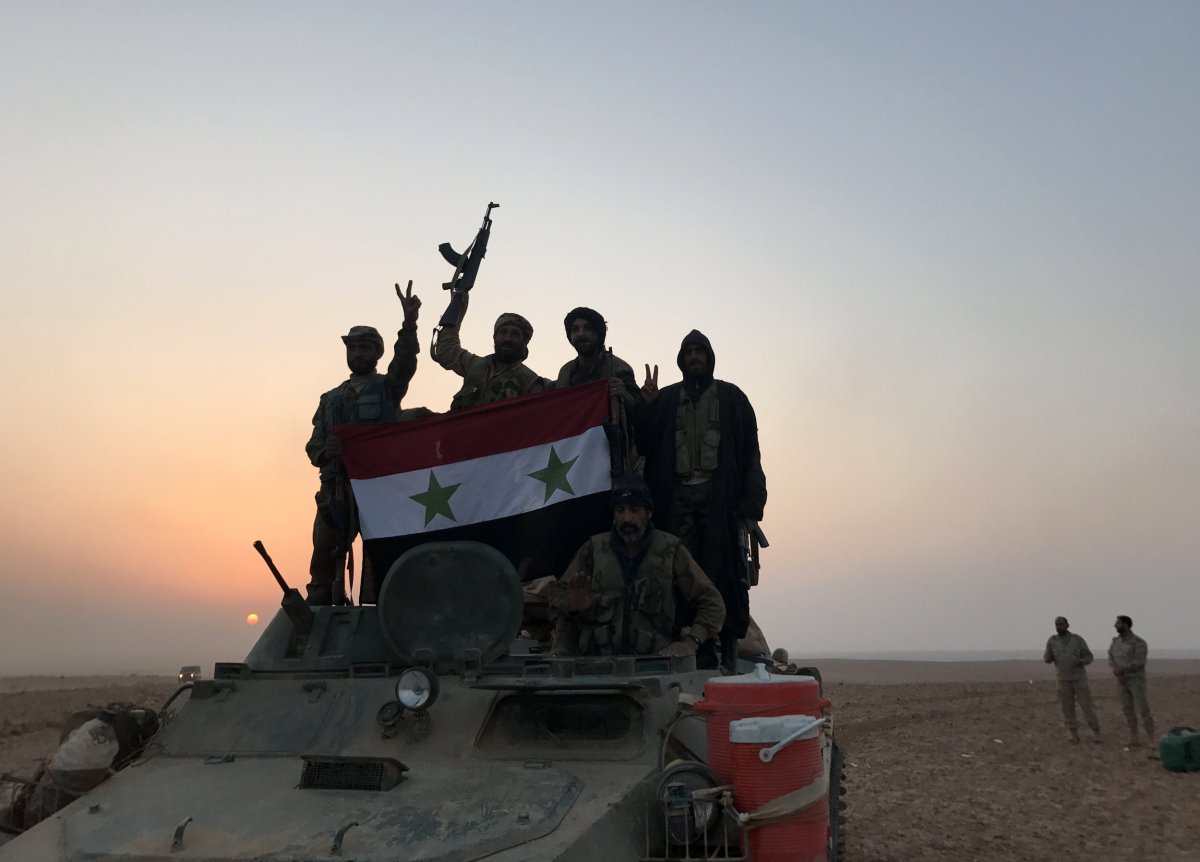
The Syrian Foreign Ministry issued a firm warning to the U.S. and other foreign forces in Syria Tuesday without the approval of President Bashar al-Assad, telling them their presence was a violation of international law and accusing them of making matters worse for the war-torn country that days ago declared victory against the Islamic State militant group (ISIS).
The ministry issued the statement in direct response to remarks by Defense Secretary James Mattis, who suggested a day earlier that U.S. forces would not be leaving anytime soon. Unlike allies Russia and Iran, which intervened against Syrian insurgents and jihadis at the request of Assad, the U.S. entered the conflict without the Syrian leader's permission and has called for his removal. With ISIS effectively defeated, the ministry urged Washington and its allies to exit immediately.
Related: Russian military could force the U.S. out of Syria, army official says
"The presence of U.S. forces or any foreign military presence in Syria without the consent of the Syrian government constitutes an act of aggression and an attack on the sovereignty of the Syrian Arab Republic as well as a gross violation of the charter and principles of the United Nations," the ministry quoted an official source as saying.
"The Syrian Arab Republic again calls for the immediate and unconditional withdrawal of U.S. forces from the territory of the Syrian Arab Republic. This presence is an aggression against Syria's sovereignty and independence and will be dealt with on this basis," the source added.

The U.S. was an early supporter of the 2011 uprising against Assad and began offering CIA support to opposition forces trying to overthrow the government. This assistance dwindled, however, as groups such as ISIS and Al-Qaeda became more powerful. The U.S. shifted its assistance to the Pentagon-backed Syrian Democratic Forces, a mostly Kurdish alliance of Arabs and ethnic minorities, and began targeting jihadis in 2014. The embattled Syrian government declared the U.S.-led coalition's entrance illegal.
In September 2015, Russia helped turn the tides of war for Assad and his allies, including Iran-backed militias. Since then, pro-government forces have plowed through ISIS and rebel territory across the country and, finally, declared victory earlier this week after taking the militants' final stronghold of Al-Bukamal near the Iraqi border.
The win calls into question the fate of the U.S.-backed Syrian Democratic Forces' parallel campaign against ISIS, which Syria, Russia and Iran have accused of actually helping the militants either inadvertently or intentionally, something the U.S.-led coalition and its allies have strongly denied. Speaking to reporters at the Pentagon, Mattis said Monday the U.S.'s job was not yet finished.
"The enemy hasn't declared that they're done with the area yet, so we'll keep fighting as long as they want to fight," Mattis said, according to Reuters.
Special Forces commander Raymond Thomas, who played a leading role in forging the U.S. alliance with the Syrian Democratic Forces, said in July that, once ISIS was defeated, Russia could challenge the U.S.'s continued presence in Syria as a violation of international law. After defending Iran's presence in Syria as an ally of the government, Russian Foreign Minister Sergei Lavrov also responded Tuesday to Mattis' recent comments, criticizing the U.S's reluctance to withdraw its troops.

"If one looks at who poses the biggest threat, it is the United States' charges, specifically, various foreign terrorists and militants, who 'cling' to those armed opposition groups backed by the U.S.," Lavrov said, according to the state-run Tass Russian News Agency.
After President Donald Trump and Russian President Vladimir Putin issued a joint statement Saturday saying "there is no military solution to the conflict in Syria," Turkish President Recep Tayyip Erdogan, who backed a pocket of Syrian rebels battling both the Russia-backed Syrian military and U.S.-backed Kurds in the country's northwest, called Monday on Russia and the U.S. to both leave Syria, according to Reuters.
Erdogan, whose armed forces Assad's government also likened to "illegal invaders," pointed to extended U.S. military presence in Iraq (14 years) and Afghanistan (16 years) as evidence that Washington had indefinitely extended its missions in the past.
Uncommon Knowledge
Newsweek is committed to challenging conventional wisdom and finding connections in the search for common ground.
Newsweek is committed to challenging conventional wisdom and finding connections in the search for common ground.
About the writer
Based in his hometown of Staten Island, New York City, Tom O'Connor is an award-winning Senior Writer of Foreign Policy ... Read more
To read how Newsweek uses AI as a newsroom tool, Click here.








